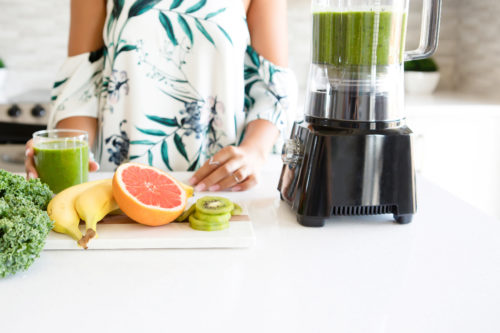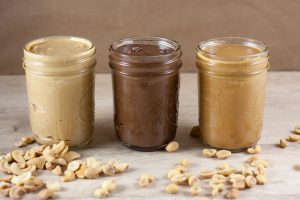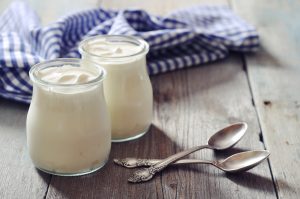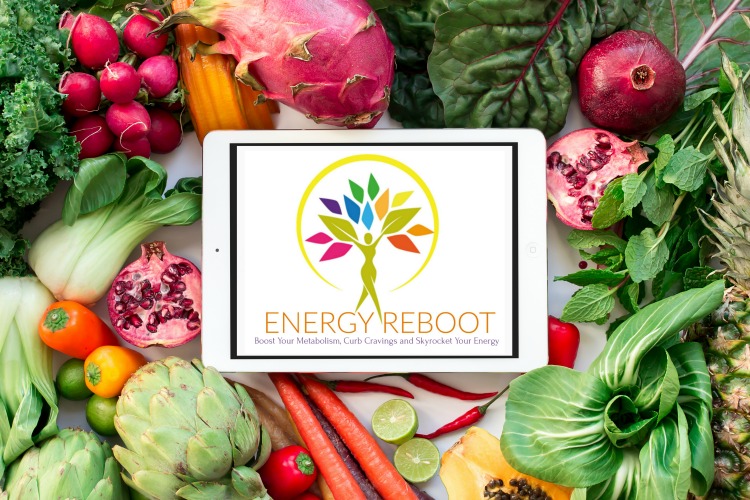
I’m so excited to have partnered with Tami Chu of Organic Crumbs Wellness on our latest project, The Energy Reboot– a 21 day real food based cleanse that boosts your metabolism, curbs cravings and skyrockets your energy while supporting your physical, mental and emotional health.
Below, she shares some healthy smoothie additions that you can enjoy both on and off the cleanse.
Smoothies are a quick, simple meal or snack that, when properly prepared, can provide a superfood boost of whole food nutrition.
In order to keep your blood sugar stable and provide lasting satiety, fats are an important ingredient in your smoothies. Here are some ideas for healthy fats to mix it up!
Avocado
Avocados are a great addition with minimal taste. They not only help your smoothie get smoother, they also pack a strong nutrient punch!
Most people know that avocados are a good source of fat (which we need for good brain health!), but they are also a great source of fiber and potassium, among many other nutrients.
What is interesting is that the fats avocados include can also make the other vitamins and minerals in your smoothie more bioavailable (easier for the body to absorb).
Some other benefits include: supporting heart health, eye health and healthy blood sugar.

Nut Butters
Depending on what you can tolerate, nut butters are a great source of protein and often a delicious treat in smoothies. Just a single tablespoon of most nut butters have around 3 grams of protein, some fiber, and a lovely amount of Omega 3 fatty acids.
These healthy fats can support heart health and healthy blood sugar.
Best types of nut butter: almond, cashew, macadamia, hazelnut and peanut butter.
Precautions: Nut allergies are a growing concern for both adults and children and can be very serious, even deadly. Please make sure there are no allergies before adding any amount to your smoothies.
From Amy: While the nutrient profile is different, sunflower seed butter is a delicious nut-free alternative to nut butters.
Coconut oil
Coconut oil has been touted as both the most nutritious superfood that has ever existed, as well as a scary saturated fat that can’t possibly be healthy. Fortunately, there are actual scientific studies (around 1500 of them), to help us weed through the vast opinions that are everywhere!
Some of what has been shown in the research is that the main benefits of coconut oil come from the presence of the medium chain fatty acids (MCFA) caprylic acid, lauric acid, and capric acid.
Simply put, the MCFAs are more quickly digested than most plant based fats, and therefore a more readily available source of energy, and less likely to be stored as fat.
Coconut oil also has been shown to support healthy cholesterol levels, memory or brain function and healthy immune function.
Choosing coconut oil: As with all oils, refined coconut oil can be bleached or overheated, stripping many of the benefits away.
Generally speaking, I recommend that you buy unrefined or “extra virgin” oils, however, if the coconut flavor is too strong for you, I have found that THIS oil has been minimally processed through careful means.
In a smoothie, the coconut taste can often add something interesting to the flavor complexity.
Some Good Brands: Wilderness Family Naturals, Tropical Traditions, Native Forest, Nutiva
Precautions: While a bit rare, some people have been known to have coconut allergies. As with all foods and topical applicants, be aware of your body’s response and listen to what it tells you.
From Amy: I often find that I get a smoother texture in my smoothie if I melt coconut oil slightly before adding it in. If I just add a spoonful, I’ll often find clumps.
MCT oil
MCT (medium chain triglyceride) oil is really just the isolated healthy fat from coconut oil. The benefit of isolating the MCT is really brain focused.
It is great if you are trying to stay on a ketogenic diet, working on clearing brain fog, or supporting the body after any kind of brain injury.
Natural Sources: Coconut oil, Palm kernel oil (make sure it is sustainably sourced), butter, milk and yogurt
Best MCT oils: Bulletproof, Dr. Mercola, Nutiva

Full Fat Yogurt
Traditionally, making yogurt was one of the ways that our ancestors preserved fresh milk. Using different strains of bacteria, they would ferment the milk (with or without heating) to make it last longer.
The benefit of that fermentation was to reduce the sugars, out-compete bacteria that causes decay and make the milk much more digestible.
Now we know that traditionally made yogurt has a whole slew of nutrients, especially if made with milk from grass fed/pasture raised animals.
These include those elusive omega-3 fatty acids, magnesium, potassium, calcium, Vitamin D, Vitamin K2, probiotics, enzymes and even a healthy dose of protein.
Proven benefits include: promoting healthy digestion and the support of healthy immune function, healthy bone structure, and stable moods.
For those with dairy allergies, yogurt can also be made with coconut milk or almond milk.
Best Brands: Maple Hill Creamery, Straus, Organic Valley Pasture Raised, Clover
How to make it at home: From Nourished Kitchen
If you loved this, you might be interested in our upcoming round of Energy Reboot. Check it out and join us!



